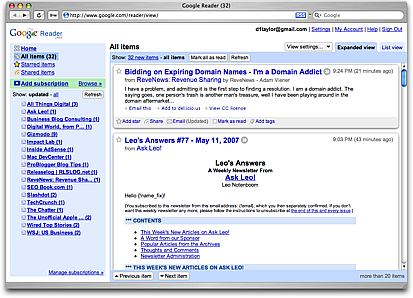Google Definition
“The Internet's most popular search engine. Can be found at www.google.com”
On www.ketteringwebsolutions.co.uk the following definition of Google was given: “The Internet's most popular search engine. Can be found at www.google.com”. This states that Google has success in the world of search engines and the URL of its Home-page is www.google.com. The glossary of www.satellite-tv-hq.com/ agrees with above and gives the next Google definition: “The world's current dominating search engine.”
Google Definition
Google is a search engine owned by Google Inc. whose mission statement is to “organize the world's information and make it universally accessible and useful”.
These both statements are proved by the next Google definition, made by the free encyclopedia “Wikipedia”: “Google is a search engine owned by Google Inc. whose mission statement is to ‘organize the world's information and make it universally accessible and useful.’ The largest search engine on the Web, Google, receives over 200 million queries each day through its various services”. This Google definition formulates the main mission of the search engine. The efforts of Google are evident, and it is confirmed by the number of queries, over 200 million each day. Such activities illustrate this Google definition, as the most popular search engine.
Google Definition
“Google scans web pages to find instances of the keywords you have entered in the search box”
In the glossary of UNC Libraries (www.lib.unc.edu), there is the following Google definition: “Google, a popular search engine, is a tool for finding resources on the World Wide Web. Google scans webpages to find instances of the keywords you have entered in the search box.” From this Google definition, you can understand that when a man enters the definite keyword to the search box, Google begins to scan webpages, looking for the instances. Let’s absorb in this process. Actually, Google doesn’t scan the Web during the search request. It has the huge database, called Index, where a large amount of webpages are situated. It counts little more than 8,000,000,000 pages for today. Index is constantly increasing and gets information from “spiders.” Search engine “spiders” or “crawlers” surf the Web all the time looking for some changes there. If they find recently posted pages or updates of the existing pages, the information is evaluated. If the new page is treated to be the relevant source, it gets to the Index. All updates, qualitative and non-qualitative, will influence on the rate of the pages in results of search requests.
Google Definition
“A web search program that ranks web pages in a list of hits by giving weight to the links that reference a specific page”
The glossary of Digital Libraries by William Arms (www.cs.cornell.edu/wya/DigLib) gives another Google definition: “A Web search program that ranks webpages in a list of hits by giving weight to the links that reference a specific page.” This Google definition mentions the comprehension of ranking of webpages. When a user gets the results on his request, he finds the list of pages listed in the sequence of their rank. This happens due to the third element of Google, after “spiders” and “index,” which could be called “software.” It scans the Index and presents the consecutive list of the most relevant pages on search query. Webpages are ranked according the algorithm of Google, which is kept top secret and is constantly being improved upon.
Google Definition
“Search Engine, inclusion in which is free”
At the SEO glossary of www.optymise.co.nz, you can find another Google definition: “Search Engine, inclusion in which is free.” It’s true that you can suggest your site for submission at Google for free at http://www.google.com/addurl/. Actually, Google’s spiders could find any way your site through the links of other sites. However, if you don’t want to wait until they find it or you don’t have inbound links, the submission procedure should be used. If a spider, however, finds your webpage, you should not wait for it to be indexed in a moment. It could take for few months, but, in the case, it is worth being indexed.
Another characterized Google definition is given at one of lessons of Web CEO University (http://uni.webceo.com) reads: “Google is by far the most important search engine. Apart from their own site receiving 350 million searches per day, they also provide the search results for AOL Search, ICQ Search, and Netscape Search (amongst others).” The fact about the level of this search engine is evident and confirmed one more time with this Google definition.
Google Definition Reader

Google Definition Reader

Google Definition Reader

Google Definition Reader

Google Definition Reader

Google Definition Reader

Google Definition Reader

Google Definition Reader

Google Definition Reader

Getting Started with Google Reader
Google Reader in Plain English
No comments:
Post a Comment